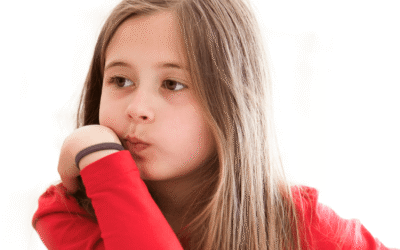When Your Child Lives in Their Own World: Understanding Internal Focus in Childhood
Children are naturally curious and imaginative, and sometimes their focus turns inward, creating a rich inner world of thoughts and ideas.
While this is a normal part of childhood, some children may have a stronger tendency towards internal focus, leading them to tune out their surroundings and miss social cues.
What is Internally Focused in Childhood?
Internally focused in childhood refers to a child who spends most of their time focused on their own thoughts and ideas, rather than the external environment.
You might catch yourself saying, “when that child gets into his video game, a tornado could hit the house and that kid wouldn’t even look up!” Your child might be quite entertained by his own internal dialogue. It may seem that the world around your child is much less interesting than their own thoughts.
Signs Your Child Might Be Internally Focused
- Lost in thought: Your child may seem preoccupied with their own thoughts and ideas, even in busy environments.
- Unaware of surroundings: They may not notice what’s happening around them or respond to social cues.
- Difficulty engaging with others: It may be challenging to get your child’s attention or engage them in conversations.
- Preference for solitary activities: Your child may prefer to play alone or engage in activities that don’t require social interaction.
- Misinterpreting social cues: They may misunderstand social cues or have trouble reading nonverbal communication.
Why Some Children Are More Internally Focused
Internal focus can stem from various factors, and it’s important to approach the situation with understanding and empathy.
Here are some possible reasons why your child may seem stuck in his or her own head.
- Social skills delays: Some children may need more time to develop social skills, leading them to focus more on their internal world.
- Attention challenges: Children with attention difficulties may find it hard to shift their focus from their internal thoughts to the external environment.
- Developmental differences: Children with developmental delays, such as autism spectrum disorder, may have differences in brain development that contribute to internal focus.
- Cognitive development: Children who are still developing their cognitive skills may be more focused on processing their own thoughts and experiences.
Bridging the Gap: Strategies to Help Your Child Connect
If your child seems to be overly focused on their internal world, there are gentle and supportive ways to help them connect with their surroundings and build social skills.
- Enter their world: Take an interest in your child’s passions and engage with them in activities they enjoy. This builds connection and trust.
- Notice what they notice: Pay attention to what captures your child’s interest and engage them in conversations about it. This shows them that you value their perspective.
- Expand their horizons: Gradually introduce new topics and activities that build upon your child’s existing interests.
- Model social interaction: Show your child how to engage in conversations, share ideas, and respond to social cues.
- Celebrate small steps: Praise and encourage any attempts your child makes to connect with others, even if they seem small.
It may seem a bit counter-intuitive, but the more important thing you can do to help an internally focused child, is go join their focus with them. What has captured their interest? Are they into trains or spiders or a youtuber?
Take some time each day to go check it out for yourself. If they are really enjoying discovering their internal world, why not stop what you are doing and join in for a moment? Keep this mantra in the back of your mind.
“If you want your child to enter your world, join theirs.”
Now, what if this internal focus is ALL your child seems to want to do? What are parents to do then?
First, really think about creating a balance. Allow your child some time to explore and then rotate that with doing things in our world. That might include sitting down to dinner. Maybe your child can tell you about spiders for 10 minutes and then sit down to dinner and focus on the conversation for 10 minutes. Maybe you can check out their favorite youtuber for 10 minutes and then go on a walk around the block together.
The idea is to move from an all-or-nothing situation. Sometimes it seems like your child is trapped in this internal world and there’s nothing you can do to get out of it.
When to Seek Professional Support
If you’re concerned about your child’s internal focus or their ability to engage with others, it may be helpful to seek professional guidance. A child psychologist or therapist can assess your child’s development and provide tailored support.
It may be time to have your child evaluated for autism, ADHD, or another neurodevelopmental difference. It is possible that your child may need support beyond what you can provide at home.
A Final Thought on Internally Focused in Childhood
Remember, every child is unique and wonderful, and their journey towards social connection will unfold at its own pace.
By providing a nurturing and supportive environment, you can help your child bridge the gap between their inner world and the vibrant world around them.
Resources for internal focus in childhood
Autism Speaks: https://www.autismspeaks.org/science/science-news/do-you-see-what-i-see
Barkley, Russell A. (2013). Taking charge of ADHD, 3rd edition: The complete, authoritative guide for parents.
Giler, Janet Z. (2011). Socially ADDept: Teaching social skills to children with ADHD, LD, and Asperger’s.
Kluth Paula, Schwarz Patrick. (2012). Just give him the Whale!
Kroncke, Willard, & Huckabee (2016). Assessment of autism spectrum disorder: Critical issues in clinical forensic and school settings. Springer, San Francisco.
Linder Ed.D., Toni & Petersen-Smith Ph.D., Ann (2008) Administration Guide for TPBA2 & TPBI2 (Play-Based Tpba, Tpbi, Tpbc). Paul H. Brookes, Inc.



